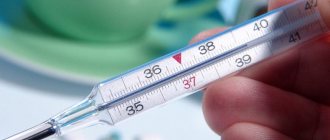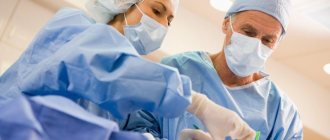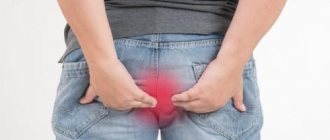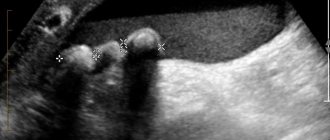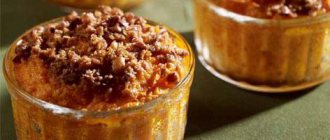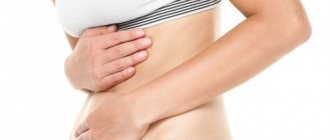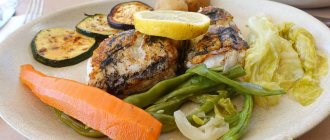A strict diet after removal of hemorrhoids restores the functioning of the digestive organs within a short time. It is recommended to drink a lot of water, avoid fatty and heavy foods, and eat little by little at regular intervals. The diet consists of proven recipes, food is prepared in gentle ways.
Diet after hemorrhoid surgery is a mandatory part of the recovery period.
General recommendations
Removing hemorrhoids surgically requires time to restore the functioning of the body. For treatment to bear fruit, you must follow a diet.
According to the diet, the patient drinks large amounts of purified mineral-rich water for the first 24 hours after hemorrhoidectomy. Eating is not allowed. After a day, according to the diet, simple food is gradually added to the diet:
- herbal or green tea;
- watery unsweetened porridge without oil;
- compote with dogwood berries.
On the 3rd day after surgery to remove hemorrhoids, a person is prescribed a recovery diet. Nutrition after hemorrhoid surgery is based on the following principles:
- The daily volume of liquid, taking into account broths and cereals, is up to 3 thousand ml.
- For peristalsis, prevention of cracks and laxative effect, regularly eat various types of vegetable oils - olive, sunflower or flaxseed.
- Eat little by little, in small portions, at least 5 times a day. Interval - 2-3 hours. For treatment, it is important to follow the regimen.
- Smoking and alcohol are not permitted.
- Even healthy food in large quantities can be harmful, so you should not overeat. The patient should get up from the table slightly hungry, eat a little at a time, chewing thoroughly.
- The patient must take all medications prescribed by the doctor without delay.
- Despite the restrictions, the diet should be varied, taking into account the taste and texture of the dish. This stimulates the functioning of the gastrointestinal tract, especially the intestines.
- Even if the patient is prone to constipation, laxatives should be used as a last resort. It is better to combat this unpleasant symptom by maintaining a diet and taking lactulose-based medications. It is necessary to drink fermented milk drinks - kefir, fermented baked milk, yogurt.
Nutrition in the first days after surgery
The first postoperative week is a particularly difficult period, fraught with complications. At this time, it is important to strictly follow the doctors' instructions without resorting to self-medication.
Special restrictions apply to nutrition. Typically, the patient spends the next day after surgery in the hospital, under the supervision of specialists.
On the first postoperative day he does not receive food, and drinking is also limited. On days 2 and 3, a very limited set of dishes is allowed.
Food can be taken in small portions, drinking regime is limited.
On the fourth day, meat and boiled vegetables are gradually introduced into the menu. The patient is allowed to include the following dishes in the diet after hemorrhoid removal surgery:
- steamed meatballs made from white meat chicken, turkey or lean fish;
- stewed zucchini, carrots, green beans, cauliflower;
- weak chicken broth with meatballs.
What can you eat after hemorrhoid surgery in the first 7 days? In the first week, it is undesirable for the patient to eat food that causes excessive fermentation in the stomach and interferes with tissue regeneration.
It includes slimy soups, fresh vegetables, sweet fruits, and viscous porridges. After 7-10 days these restrictions are lifted.
The menu becomes more varied 7 days after surgery. It includes poultry and fish, and the list of permitted vegetables and fruits is expanded.
Portions should be small; for better absorption, the diet should be divided into 4-5 parts. To prevent food from seeming boring, the diet after hemorrhoid surgery should be as varied as possible, rich in vitamins, fiber, and proteins.
Monday
Breakfast:
- crumbly millet porridge on water;
- rosehip decoction with honey.
Lunch:
- whole grain toast with honey.
Afternoon snack:
- vegetable stew with grain bread toast;
- Mint tea.
Before bedtime:
- a glass of low-fat homemade yogurt.
Tuesday
Breakfast:
- buckwheat porridge with water;
- green tea with soy milk.
Lunch:
- freshly squeezed plum juice.
- baked tomato with low-fat cheese;
- carrot juice.
Before bedtime:
- tea with hawthorn and lemon balm.
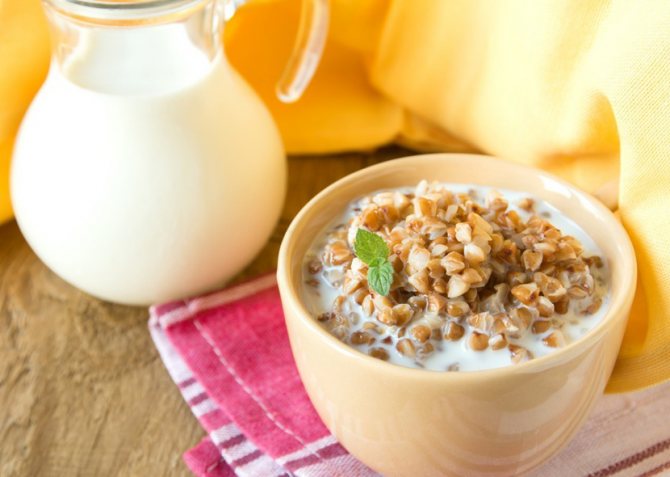
Breakfast:
- bran bread toast;
- boiled egg;
- chicory drink.
Lunch:
- pasta with vegetable sauce;
- rosehip tea with honey.
Thursday
Breakfast:
- oatmeal with dried fruits;
- green tea.
Lunch:
- seaweed salad;
- steamed turkey;
- apricot juice.
Friday
Breakfast:
- cottage cheese casserole;
- chicory drink.
Lunch:
- salad of grated carrots and beets.
- fish soufflé;
- green tea with dates.
Saturday
Breakfast:
- pearl barley porridge;
- green tea with soy milk.
Lunch:
- fish with tomatoes;
- a piece of fresh melon.
Sunday
Breakfast:
- cheesecakes with steamed berries;
- rosehip tea.
Lunch:
- warm salad with carrots;
- apricot mousse.
Before bedtime:
- low-fat kefir with bran.
On the first day after surgery, you should refuse to eat; it is recommended to only drink. This will help relieve the intestines from unbearable load. You are allowed to eat after 24 hours, but regular food will not work. Nutrition after hemorrhoid surgery:
- Porridge with diluted milk, water (crushed in a blender or rubbed through a sieve).
- Vegetable broth or decoction (without the vegetables themselves).
- Classic steam omelette.
- Kissels, fruit jelly.
- Compote, weak black and green tea, fresh juices diluted in half with water (plum, grape, apricot are not allowed).
Important. At first, the amount of food per meal should not exceed 250 g, and you need to eat at least 6 times a day, and preferably 8. All dishes should be served warm, with a liquid or semi-liquid consistency. The amount of salt should be reduced to 1 g per day.
On days 2–4, new products and dishes made from them are introduced into the menu of the operated patient. They are still prepared by steaming or simply boiling. Six split meals a day, which facilitates bowel function and makes stool softer, also remains unchanged.
It is not always possible for a patient to independently decide on a list of dishes for the day. The following menu example will help make the task easier:
- Breakfast: poached egg, weak tea.
- Breakfast (second): 1-2 baked apples.
- Lunch: soup with semolina in vegetable broth, steamed chicken meatballs, dried fruit compote.
- Afternoon snack: wheat crackers, rose hip decoction.
- Dinner: buckwheat with cottage cheese, tea
- Snack: fresh grated cottage cheese.
The following menu option can be used 5–7 days after surgery:
- Breakfast: oatmeal with milk, tea.
- Breakfast (second): berry jelly.
- Lunch: oatmeal soup, boiled rabbit meat, fresh fruit.
- Afternoon snack: steamed omelette, crackers, dried fruit compote.
- Dinner: boiled fish, tea with cream
- Snack: baked apple.
Before the operation itself, enemas are given to avoid contamination of the wound with feces, so that the next day the intestines are usually empty. In order not to immediately damage the unhealed sutures by defecation, the patient is allowed to drink only water on the first day of the operation.
The next day, gradually add soups with vegetable broth, thin porridge, lean chicken, or fish. Low-fat fermented milk products are gradually introduced, and then stewed vegetables and baked apples, an omelet.
This regimen lasts from 3 days to a week, depending on the degree of tissue regeneration around the scar.
Varicose veins in hemorrhoidal veins are considered a common pathology.
Its symptoms affect half the population worldwide. With the disease, the venous vessels in the cavernous formations in the anus dilate under the influence of abundant blood flow.
Their deformation occurs, leading to the formation of internal or external hemorrhoids.
The nodes can cause a lot of trouble to the patient: pain, itching, burning, bleeding.
Modern medicine offers effective treatment using effective drugs.
Sometimes they do not help, so surgery to remove hemorrhoids is prescribed.
This method of therapy is radical. It consists of mechanical cutting off hemorrhoidal cones.
There are 2 types of surgery:
- Milligan-Morgan operation. This type of intervention is open. After removing hemorrhoidal cones, the wounds are not sutured, leaving them in this position until complete healing.
- Operation Ferguson. After surgical manipulation, the edges of the wounds are sutured. With this operation, the recovery period is significantly reduced. The patient tolerates the operation more easily.
Regardless of the type of surgery, removal of hemorrhoids is a very painful process.
For these reasons, in order to avoid such complications, it is important to follow all the recommendations of the proctologist.
These recommendations also apply to nutrition. A diet after hemorrhoid surgery will speed up the healing process and improve the patient’s well-being.
When there is a circulatory disorder, characterized by venous stagnation in the rectum, hemorrhoidal nodules form.
One of the main causes of the disease is poor nutrition. Eating aggressive and harmful foods (spicy, fatty, fried, heavy, alcohol) leads to stagnation of blood in the perineum, the veins in the rectum become overfilled with blood.
To avoid such manifestations, the diet of a patient suffering from hemorrhoids should be as gentle as possible, excluding all harmful foods.
With such a diet, all foods that provoke constipation, bloating, and flatulence should be excluded.
Hard stool can aggravate the situation by damaging the hemorrhoids, so you should strive for soft stool.
The pathology is prone to relapse, so the patient must eat properly throughout his life.
When consuming approved foods, a person saturates the body with useful substances and feels better.
When performing an operation on a patient, he is faced with postoperative problems. What are they:
- pain;
- fear of pain at the time of bowel movement;
- Sometimes cracks and bleeding occur from these formations (with hard or bulky stools).
A dietary menu after hemorrhoid surgery provides protection against postoperative complications and subsequent complex treatment.
Diet after hemorrhoid removal must comply with several important rules:
- Do not irritate the rectum or affected area. For these reasons, it is prohibited to consume herbs, spices, marinades, hot, salty, smoked foods. An irritating effect can be caused by bile acids, which are released in large quantities during the digestion of fatty meat and fish foods. Therefore, you should not eat fried food while eating boiled and steamed food.
- They strive for soft stools. To do this, eat food that has a laxative and softening effect. This number includes cereals and vegetables. Drink a large volume of liquid, preferably purified still water.
- Stop the formation and accumulation of gases in the intestines, excess feces. For this purpose, exclude products that contribute to this formation: brown bread, beans, cow's milk, cabbage, nuts, carbonated drinks, and others.
- Strengthen regeneration processes. Food should be rich in protein, vitamin complex, and healthy elements. They prefer lean meat and fish due to their high protein content. This component is the leading one in regeneration.
- Number of meals. You should eat 5-7 times a day in small portions. You can’t overeat or overload your intestines.
These rules should be followed until complete recovery. Diet after hemorrhoids will prevent the occurrence of postoperative complications.
Many patients wonder what they can eat after surgery? In the first 24 hours after surgery, do not eat anything at all.
During this period, you can only drink liquids. It is better to limit yourself to purified drinking non-carbonated water.
Drinking regime is very important for a patient with hemorrhoidal disease; you should drink at least 1.5-2 liters of water per day.
This diet will prevent the formation of feces in the first 2 days after surgery.
A day after surgery, include other sugar-free drinks:
- weak green tea;
- herbal teas (chamomile, chamomile with nettle, chamomile with mint, chamomile with nettle and lemon balm);
- dried fruits (apples, prunes).
Second day
- Buckwheat or millet porridge is nutritious, but at the same time it is an easy product for the stomach and intestines. It is important that the porridge has a crumbly consistency and does not stick together. To do this, the cereal is washed five to six times under cold running water before cooking. When the porridge is almost finished cooking, turn it off and let it brew so that the porridge can absorb excess water.
- Wheat bread made from wholemeal flour is rich in vitamin B and other beneficial substances. This composition helps improve the digestive process and speed up the body’s recovery process after surgery.
- Fermented milk products, unlike milk, contain bacteria that can cause fermentation in an inactive state. They contain useful and nutritious substances that help improve the digestive process. In this regard, these products help the body quickly restore immunity and speed up recovery.
- Meals containing proteins, such as veal, chicken, and fish, also contribute to a speedy recovery. But these products should be consumed only a week after the operation in small portions.
What can you eat on a diet after hemorrhoid surgery?
In the postoperative period, nutrition is restored gradually. If you immediately start eating a lot, the body may not be able to cope with the load, the stitches will come apart, and the operation will be ineffective. After adding a new product to the menu, you need to listen to the reaction of the digestive organs. As before surgery to remove hemorrhoids, the menu is based on gentle heat treatment.
After surgery to remove hemorrhoids, the following are allowed:
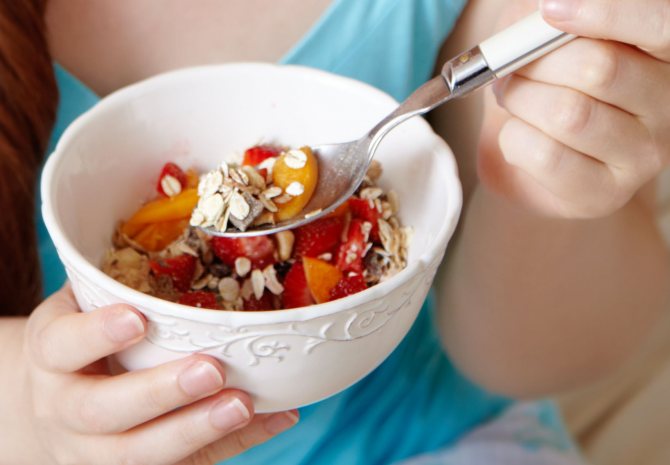
Porridge, milk, lean meat, broths, fruits and vegetables are the basis of the diet after hemorrhoid surgery.
- Fermented milk products. The bacteria that cause fermentation in fermented milk are no longer active. Important elements produced during the production of kefir or yogurt have a positive effect on the digestive tract, preventing complications from developing after surgery.
- Loose porridge made from buckwheat or millet groats. This type of cereal is nutritious, but at the same time not difficult for the digestive system. Before cooking, the cereal is washed several times with cool water. When slightly undercooked, turn off the heat under the pan, cover with a lid and let sit for 7-10 minutes. The dish will absorb the remaining water.
- Lean meat, sea fish. Added to the diet after removal of hemorrhoids, a week later under the supervision of a doctor.
- Unsweetened baked goods made from wholemeal flour. This bread is rich in vitamin B, which helps restore bowel function.
- Fruits and vegetables, especially those containing fine fiber. After surgery, boiled carrots, pumpkin, lettuce, and cauliflower are useful. Raw - added gradually. Potatoes - boiled or baked. Fruits are introduced from bananas, then kiwi, prunes, and dried apricots are added. Just a little bit, watching the reaction and not provoking bloating.
- Vegetable broths are used for the first course.
- Non-carbonated water saturated with minerals, vegetable or fruit juice, decoction of medicinal herbs.
Features of nutrition in the postoperative period
Light meals are prescribed. It will help to have a soft bowel movement that does not damage the sutures. Organize meals according to the rules:
- After removing hemorrhoids, we eat often, in small portions. Eat food every 2-2.5 hours to avoid overloading your intestines.
- Food should be light on the stomach and not irritate the postoperative sutures when exiting through the anus. Avoid foods that cause flatulence and bloating.
- Include foods that regulate bowel movements and do not cause constipation.
- On the first day, it is better not to eat anything, just drink. Helps heal sutures and softly excrete feces.
- After hemorrhoid surgery, you need to start eating the next day.
Products prohibited during the postoperative period
The condition of the diet is the exclusion from the diet of foods that affect gas formation in the intestines:
- The consumption of garlic, onions, fresh milk, grapes, black bread, dried fruits (raisins) is prohibited. Dried apricots and prunes can be consumed.
- It is not recommended to drink drinks with gas, kvass - substances that cause fermentation and bloating are added during production. Do not eat legumes - they provoke flatulence.
- The diet includes eating vegetables. Eliminate white cabbage and radishes from the diet - they affect the formation of gases in the intestines and contain fibers that are difficult for the stomach to digest.
- You should not eat cherries, strawberries, currants, which stimulate the secretion of gastric juice - it increases hunger.
- Smoked meats, spicy seasonings, vegetable marinades, and alcohol are excluded - they increase blood flow in the abdominal organs and slow down the healing of sutures.
- You should not eat goose, pork, lamb, mushrooms - they contain proteins that are difficult to digest.
Products allowed after surgery
After hemorrhoid surgery, after the first day of fasting, limit the amount of food you eat at a time.
The body replenishes spent energy. Start eating by introducing new foods into the postoperative nutrition menu gradually. Listen to your body and how it perceives certain substances introduced into your diet.
Steamed, boiled and stewed foods are allowed. No fatty or fried foods.
- Nutritious buckwheat, millet, and oatmeal porridges are easy on the stomach. To normalize digestion, you need to eat them more often. Before cooking, rinse the grains under running water to prevent the grains from sticking together during cooking. After cooking until done, cover the pan with the porridge with a towel and let it brew. The porridge will be crumbly and tasty without oil. It is recommended to eat cereals: barley, pearl barley. Cooked in water, they are indispensable when maintaining a diet after surgical removal of hemorrhoids. It is recommended to avoid rice and semolina.
- It is permissible to eat white bread made from durum wheat. Better with bran, coarsely ground. Rich in vitamins, it will help you quickly restore strength after surgery to remove hemorrhoids. Easy to digest and will not overload the stomach.
- Fermented milk products are useful. Contains active bacteria that produce substances that help improve digestion. To improve digestion, it is recommended to include cottage cheese, sour milk, and yogurts in your diet.
- To replenish animal protein in the body, cook chicken, veal, and fish. Be careful when entering products. They are included in the menu after a week in small test portions.
- Postoperative nutrition includes vegetables and fruits. Vegetables are boiled, baked in the oven, or steamed. Soups are prepared with them. It should be consumed raw with caution - the increased fiber content disrupts intestinal function. Pay attention to cucumbers, tomatoes, zucchini, cauliflower, and broccoli in your diet. Substances relax muscles.
- Fruits are acceptable. It is safer to eat bananas and kiwi. They have laxative properties. Overeating is unacceptable - excess leads to bloating.
- It is recommended to drink plenty of fluids. Drink more water, tea, compotes, infusions of yarrow herb, nettle leaves.
What can't you do after surgery?
To prevent hemorrhoids from returning after surgery, foods that provoke fermentation processes and flatulence should be excluded from the diet, namely:
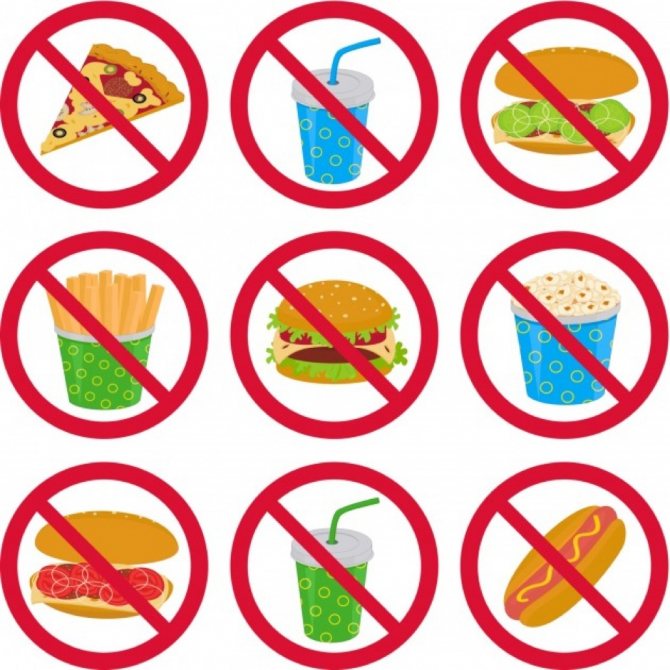
After surgery for hemorrhoids, you should avoid fast food, alcohol, fried foods, smoked foods, and salty foods.
- fresh and dried grapes;
- dark varieties of bread;
- any kind of kvass;
- carbonated drinks;
- fresh milk;
- smoked meats;
- alcoholic drinks;
- beans;
- preserves and pickles;
- mushrooms;
- fatty meats and poultry.
The diet after hemorrhoid surgery excludes raspberries, gooseberries, dates, onions and garlic. These products enhance the production of gastric secretions.
Basic principles of diet after hemorrhoid surgery
The diet after radical treatment of hemorrhoids will need to be followed for a long time to prevent relapse of the disease.
They begin to adhere to it 3 - 4 weeks after the operation, when the integrity of the mucous membrane is restored and the main task is to normalize intestinal motor function.
Considering that the reason for the enlargement and prolapse of hemorrhoids is stagnation of blood in the pelvic vessels, which is often caused by constipation and straining during bowel movements, the diet is aimed at the formation of soft, regular stools. In addition, there is a risk of injury to the rectal mucosa, which is vulnerable after surgery.
General principles of diet
In this regard, the general principles of diet therapy after surgery for hemorrhoids are:
- compliance with the drinking regime: consumption of at least 1.5 liters. fluids per day;
- the amount of table salt is limited to 2 g/day;
- inclusion of foods containing dietary fiber;
- frequent (at least 5 times a day) split meals, because the main stimulator of intestinal motility is food intake. It is necessary to adhere to the regime;
- chemically and mechanically gentle food. There should be no sharp, irritating seasonings, no contact of traumatic agents (bones, seeds of vegetables and fruits, etc.) should be allowed; food components must be thoroughly ground or chewed;
- methods of culinary processing of products - boiling, stewing, baking.
After surgery for hemorrhoids, an early expansion of the motor regimen and physical therapy as recommended and under the supervision of the attending physician are also essential.
Products allowed and prohibited for patients after hemorrhoid surgery
In accordance with the basic principles of the diet, a list of permitted and prohibited foods is determined.
| Allowed | Prohibited |
| · dairy products: milk, cottage cheese, kefir, yoghurts; · porridge from oatmeal, buckwheat, pearl barley, soups with the same cereals; · vegetables, fruits and berries with a laxative effect (beets, pumpkin, carrots, plums, apples, apricots, bananas, dried fruits), greens; vegetable oil is added to salads; · lean meats and poultry: chicken, turkey, veal; · low-fat fish; · legumes, nuts, flax seeds; · bread with bran and whole grain; bran can also be added to second and third courses; · mineral waters without gas - Essentuki No. 4, 17, Slavyanovskaya, Batalinskaya; fruit juices. | Foods that slow down intestinal motility: · dairy products with a high percentage of fat content - cheese >45%, homemade cottage cheese, cream; · rice and semolina cereals; · vegetables, fruits and berries with a fixing effect (persimmon, pomegranate, blueberries), fruit and berry jelly, jelly; · fatty meats and poultry: pork, lamb, duck; · fatty fish: herring, mackerel, salmon, trout; · wheat bread, butter and puff pastry products; · products containing natural tannins and caffeine: tea, especially green tea, coffee, chocolate, cocoa. To prevent irritation of the intestinal mucosa, avoid alcohol, hot seasonings and sauces (horseradish, black and chili pepper, vinegar, mayonnaise), fresh onions, garlic, radishes, turnips. |
The main criterion for the effectiveness of the diet is to achieve normal stool consistency and frequency of bowel movements once every 1 to 2 days without difficulty.
In the structure of therapeutic nutrition, the diet corresponds to number 3. It is physiological and complete, i.e. Provides all the body's needs for nutrients, microelements and vitamins.
Sample menu
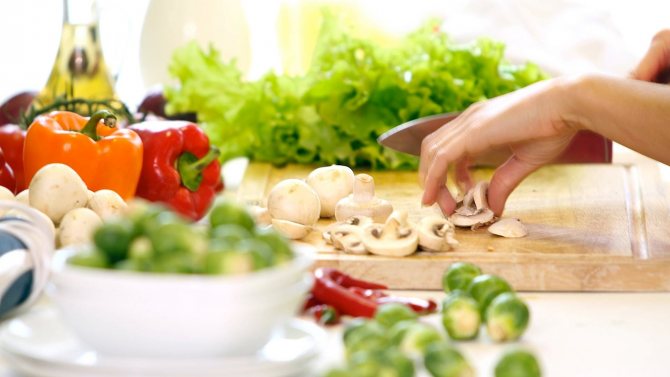
The menu after surgery to remove hemorrhoids is planned to be varied and, despite the restrictions, tasty. When planning a diet after surgery, it is important to take into account the presence of concomitant diseases. After a month, the postoperative diet for hemorrhoids will be relaxed. It is recommended to create a menu for the week using proven recipes. The table shows several menu options for each meal:
| Eating | Approximate diet |
| Breakfast | Viscous porridge, banana |
| Prunes, kefir | |
| Steam omelette with vegetables | |
| Lunch | Banana |
| Boiled eggs | |
| Bread | |
| Dinner | Vegetable soup, grated potatoes, steamed fish/meat cutlet |
| Casserole, chicken broth | |
| Fish broth, breast, steamed vegetables | |
| Afternoon snack | Low-fat cheese |
| Grinded curd mass | |
| Baked apple | |
| Dinner | Carrot salad, boiled breast, jelly |
| Boiled fish, baked bell pepper | |
| Viscous boiled buckwheat, prunes | |
| Before bedtime | Ryazhenka |
| Steamed apple | |
| Yogurt |
Diet during the recovery period
2 weeks after surgery, the menu becomes more varied. Now food intake is reduced to 5 times a day, and dishes can not only be steamed and boiled, but also stewed and baked (only without crust). At the same time, the dietary table should give strength to restore the body; it is important that the diet is balanced and the products are healthy.
stewed fermented milk products and fresh vegetables
The main emphasis should be on stewed and fresh vegetables and fermented milk products. They do not overload the stomach and promote regular bowel movements.
List of permitted products:
- lean meat and fish, seafood, eggs;
- buckwheat, wheat, pearl barley, barley, millet groats;
- soups with second meat and fish broth, borscht, beetroot soup, cabbage soup;
- bread made from second-grade flour (and not fresh, but yesterday’s), biscuits, dry biscuits;
- fresh cottage cheese, yogurt, cheese, cream, milk, sour cream (in dishes);
- bechamel sauce, tomato, sour cream;
- ripe, sweet berries and fruits;
- zucchini, carrots, pumpkin, beets, tomatoes, broccoli, cauliflower;
- green tea, fruit tea, black tea, chicory, compotes, vegetable, berry, fruit juices;
- honey, marmalade, jam, marshmallows in limited quantities;
- rice cereals, potato dishes infrequently.
List of taboo products:
- fresh apples, cabbage, radishes, legumes;
- grapes, gooseberries, citrus fruits;
- sorrel, onion, radish, garlic;
- smoked meats, pickled and spicy foods;
- conservation;
- natural coffee, alcoholic drinks, sparkling water, kvass, cocoa, strong tea.
Sample menu after surgery (2 weeks - 1 month)
The patient is allowed almost all main dishes. Casseroles, puddings, oven-baked meats, various stews - eat whatever your heart desires. So, an example menu:
- Breakfast: buckwheat flakes, grated cheese, soft-boiled egg, tea.
- Breakfast (second): steamed meat balls, unsweetened yogurt.
- Lunch: vegetable puree soup, steamed meatloaf, cauliflower casserole, compote.
- Afternoon snack: curd pudding, fruit jelly.
- Dinner: mashed potatoes, boiled fish with sour cream sauce, biscuits, tea.
Or another option:
- Breakfast: steam omelette with carrots, vegetable salad, fresh fruit.
- Breakfast (second): cottage cheese with sour cream, a piece of bread with jam, tea with milk.
- Lunch: soup with noodles and meatballs, fish baked with vegetables, compote.
- Afternoon snack: dry cookies, liver pate, fruit jelly.
- Dinner: sweet milk porridge, carrot-apple roll, biscuit, tea with honey.
The recovery process after hemorrhoid surgery largely depends on nutrition, so you should not neglect the therapeutic diet. It helps to significantly improve digestion, normalize stool, restore basic intestinal functions, and avoid bloating and abdominal pain. If you follow the diet correctly, you can return to your normal lifestyle within a month.
What to drink and how much?

Nutrition after hemorrhoid surgery should be accompanied by increased fluid intake. Principles of beverage consumption:
- Cold drinks are consumed half an hour before meals.
- After eating, the drink should be warm or hot.
- You cannot eat or drink water. This dilutes the gastric juice.
- Drink tea half an hour after eating.
Fiber has a healing effect only with a sufficient amount of fluid. Otherwise, there is a high risk of severe constipation.
To prevent knots, flatulence and cracks from returning, the daily water intake should be at least 8 cups. A glass of cold water on an empty stomach in the morning softens the stool and makes bowel movements soft and painless. Even if thirst does not bother you, you need to drink a little water. After surgery, a full glass should always be on the nightstand near the bed. Food should not be dry.
